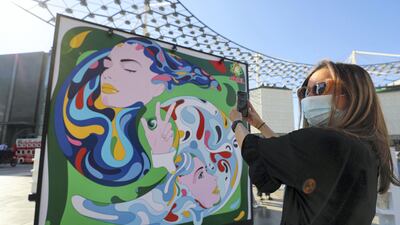More than three years after Covid-19 was declared "a public health emergency of international concern" by the World Health Organisation – the highest level of alert – the UN agency has stated that the emergency is over, bringing a long period of global upheaval to a symbolic close.
"It is with great hope that I declare Covid-19 over as a global health emergency". The announcement by WHO Director General Dr Tedros Adhanom Ghebreyesus will have brought relief to millions of people around the world, even as countries in the past year have continued to return to relative normality. Official word from the health body, however, is still greatly valued for its knowledge-based authority and for its universal health guidelines in the days when reliable information on the virus was limited.
Before the Covid-19 vaccines were developed and made accessible internationally, and especially in the first two years of the pandemic, the WHO provided a roadmap to the world and sensibly advised caution when uncertainty was high and the virus was more lethal than it is today after mass inoculations. The caveat remains that the end of the emergency does not mean Covid-19 is over as a global health threat. But just as we once frequently heard how we were "all in it together", it would appear that we have come a long way. Indeed, officially, we are all out of it together.
Since the end of 2019, from the very early days of Covid-19, people all over the world have endured untold personal losses to varying degrees. The ending of the state of emergency – even in the very phrasing of the term – imparts a poignance to the confirmation that the worst is officially behind us. It is little wonder then that some WHO personnel grew emotional during the announcement, urging people to learn from the lessons of these past years.
A moment to reflect on how far we have come, globally and nationally here in the UAE, is not out of place. Dr Ghebreyesus's words are a sombre reminder of the profound ways in which the world changed, including how millions of people lived their lives. Even though the WHO stated a pandemic only in March 2020, the state of emergency came into force on January 30 that year. In the period between the early days of the emergency and Friday's announcement, the world lost more than 6.9 million people to the virus. In the UAE, we were fortunate to have a robust healthcare system and measures aimed at protecting the population, many other countries were not as prepared or able.
Since the time of lockdowns, masks, gloves, PCR tests, social distancing, and measures that may have often been a necessary inconvenience, in the past several months, much of the world has gradually turned a page and begun to live with the virus, without being held captive to its mutations and continued presence.
The world will increasingly adjust to the virus and to new cases of infections that have not wholly stopped, but drastically reduced. There is, however, no denying that the official word from the health authority gives countless people a sense of closure.
While the Covid-19 losses have been immense, we can live our lives confident in the knowledge robust and efficient health systems are in place – particularly in the UAE, in the case of future pandemics. Even as the world moves on, countries must remain vigilant and adequately prepared.

